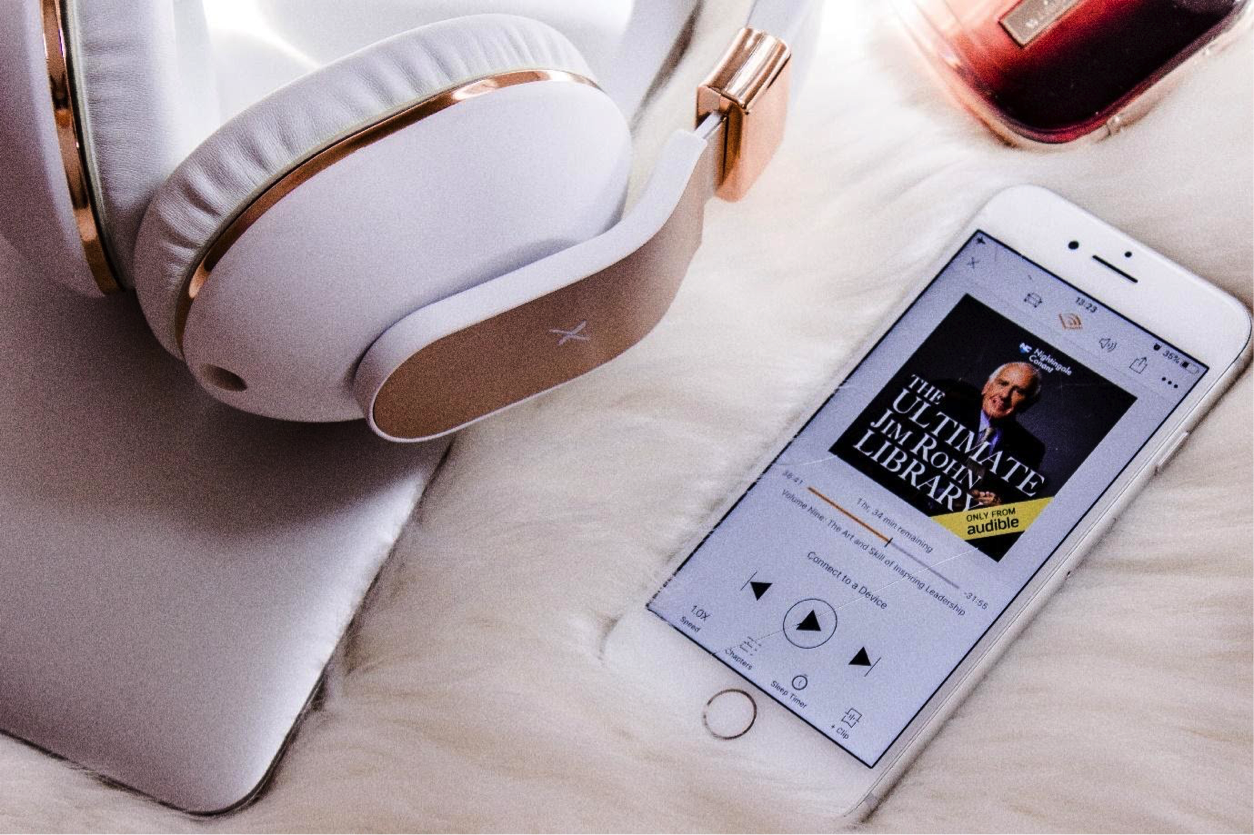The Rise of Audiobooks
In 2005, a Publisher’s Weekly article claimed that “downloadable audiobooks are poised to transform the market” (Cheever, p. 26) Back then, audiobooks only made up around 4-10% of the total book market, but was at the time experiencing a slight increase in sales (ibid). Today, it is the fastest growing sector in digital publishing. Turns out they were right.
 Photo credit: Lena Kudryavtseva on Unsplash
Photo credit: Lena Kudryavtseva on Unsplash
Audiobooks have come a long way since the time of cassettes and CDs. The sector is still considered to be the baby in the industry (compared to its physical peers), but is nonetheless growing fast. While the sales of physical books have seen a decline within the last few years, the audiobook format has increased in popularity. For example, in 2018, US audiobooks had a 27.3% increase in unit sales (Anderson, 2019).
Due to the surge in sales, publishers have started to invest some serious money into the production of audiobooks. To set an example – for the production of George Saunders’ successful novel Lincoln in the Bardo there were 166 narrators featured on it (Thorp, 2020). As more and more people are purchasing audiobooks, publishers see more potential in investing and being creative with them.
So why exactly are people choosing to buy audiobooks?
Firstly, the format has helped transform the concept of reading, which was before considered as a mainly solitary occupation. How? It allows for multi-tasking. According to the 2018 annual survey of the Audio Publisher’s Association; 74% of audio books consumers listen in their cars (Anderson, 2019). With audio books, you can read a book while working out, cleaning your house, cooking, and tons of other activities.
Secondly, it is portable. Nowadays, when people are so focused on getting from point a to b quickly; audiobooks seems to be a format that fits with the busy world that we live in. As stated in The Publisher’s Association study, 54% of UK audio books listeners buy them for their convenience (Thorp, 2020). What is more convenient than having your books available on your phone? Reading an audio book just requires less effort than physical books.
Thirdly, there is also the case of enchantment. There is just something about listening to a story, that can really make you connect with it on an intimate and emotional level. Storytelling has been a part of human culture for a long time, and the art was important in ancient civilizations. It is a part of our history. Therefore, for many there is just a “natural” appeal of the format. Some stories are just easier on the ear than on the page.
There are likely to be many other reasons for why people see the appeal of the format. But, whatever the reasons are, the main thing to draw from this is that the success of audiobooks does not seem to be fading away anytime soon.
References:
Anderson, P. (2019) ‘Audio Publishers Association: Nearly $1 Billion In 2018 Audiobook Sales’. [online] Publishing Perspectives. Available at: https://publishingperspectives.com/2019/07/audio-publishers-association-survey-nearly-1-billion-in-2018-sales/ [Accessed 10 March 2020].
Cheever, B., (2005) ‘Audio Gets Down.’’ Publishers Weekly, 252(30), p. 26.
MacManus, R. (2019) ‘Audiobooks Deep Dive: Latest Statistics & Trends.’ [online] Cybercultural.com. Available at: https://www.cybercultural.com/p/audiobooks-deep-dive-latest-statistics [Accessed 10 March 2020].
Thorp, C. (2020) ‘Audiobooks: The Rise And Rise Of The Books You Don’t Read’. [online] Bbc.com. Available at: http://www.bbc.com/culture/story/20200104-audiobooks-the-rise-and-rise-of-the-books-you-dont-read [Accessed 10 March 2020].